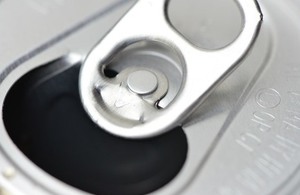Children consume more than a year鈥檚 worth of sugar in 6 months
Children in England are on track to consume around 4,800 cubes of sugar by the end of the year, more than double the maximum recommendation.

Children in England have already consumed more than a year鈥檚 worth of sugar, according to figures from Public Health England (PHE).
Children aged 4 to 10 years should have no more than the equivalent of 5 to 6 cubes of sugar each day, but are consuming on average 13 cubes. This means they are on track to consume around 4,800 cubes of sugar by the end of the year, more than double the maximum recommendation.
Sugary soft drinks remain one of the main contributors of free sugars to children鈥檚 diets, more than ice cream and puddings combined.
Apart from fruit juice, which counts as one of our 5 A Day, the other main sources of sugar in children鈥檚 diets are:
- Sugary soft drinks (including squashes, juice drinks, energy drinks, cola and other fizzy drinks) 10%
- Buns, cakes, pastries and fruit pies 10%
- Sugars, including table sugar, preserves and sweet spreads 9%
- Biscuits 9%
- Breakfast cereals 8%
- Chocolate confectionery 7%
- Sugar confectionery 7%
- Yoghurt, fromage frais and other dairy desserts 6%
- Ice cream 5%
- Puddings 4%
Fruit juice with no added sugar can be a healthier alternative to soft drinks. However, it contributes a significant amount of sugar to children鈥檚 diets when consumed in large amounts. Therefore fruit juice and smoothies should be limited to a combined total of 150ml per day.
Too much sugar can lead to weight gain, obesity and tooth decay, a third of children leave primary school overweight or obese, while around a quarter of 5 year olds suffer from painful tooth decay. Children above a healthy weight are more likely to remain so as adults, increasing their risk of preventable health conditions including type 2 diabetes, heart disease and some cancers.
It is not too late to reduce children鈥檚 sugar intake for the remainder of the year. PHE鈥檚 Change4Life campaign is urging parents to make simple changes:
- swap sugary drinks for plain water, lower fat plain milks, sugar-free or no added sugar drinks.
- the has easy drink swaps and helpful tips for families
- limit fruit juice and smoothies to a total of 150ml per day and only consume these drinks with meals 鈥� they count as a maximum of one portion of our 5 A Day
- by swapping cakes, biscuits, chocolate and sweets for fruit, plain rice cakes, toast, fruit teacakes, malted loaf or bagels with lower fat spread
Dr Alison Tedstone, chief nutritionist at PHE said:
We鈥檙e barely halfway through the year and already children have consumed far more sugar than is healthy 鈥� it鈥檚 no surprise this is contributing to an obesity crisis.
Snacks and drinks are adding unnecessary sugar to children鈥檚 diets without us even noticing. Swapping to lower or no added sugar alternatives is something all parents can work towards.
Parents can visit the website for helpful swaps and tips, and download the to see the sugar, fat, salt and calories in popular foods and drinks.
Tackling obesity and tooth decay requires wider action and does not rely solely on parents. PHE is working with the food industry to cut 20% of sugar from the foods children consume most by 2020. Sugar reduction guidelines for juice and milk based drinks outside the scope of the Soft Drinks Industry Levy are to be achieved by mid 2021.